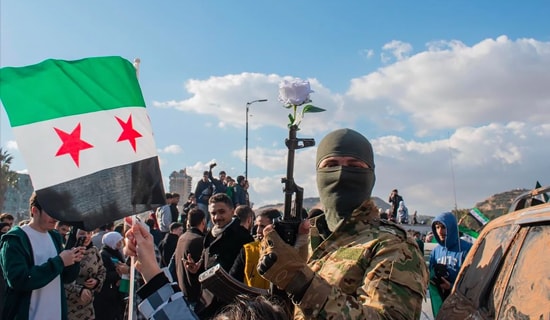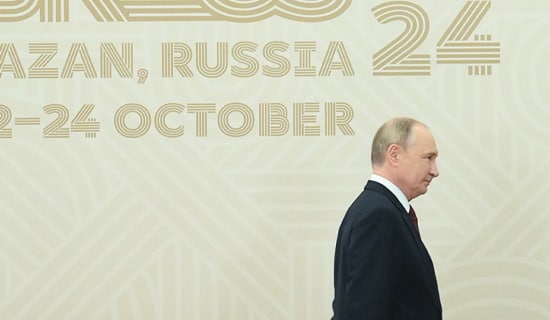Biden's upcoming visit to Saudi Arabia, scheduled for July 15-16, 2022, is being widely discussed in the Arab media and particularly in the Saudi media, especially as it comes amid tension between the U.S. and Saudi Arabia that has prevailed since the beginning of Biden's presidency. America's current policy in the region, including towards Iran and its militias in the Arab countries, is perceived in Saudi Arabia as a betrayal of the strategic alliance between the two countries and as a threat to the security and stability of the region. Furthermore, a pall is cast over the visit by the tension resulting from the strained personal relations between Biden and Saudi Crown Prince Muhammad bin Salman, whom the U.S. considers responsible for the murder of journalist Jamal Khashoggi in 2018. This tension came to a head recently when bin Salman refused to accept a phone call from the American president.
However, while Biden has stated that he will not meet personally with bin Salman during the visit, but will only encounter him as part of a broader forum, he is expected to meet him as part of a summit with bin Salman's father, Saudi King Salman bin 'Abd Al-'Aziz and his team.[1] The U.S. President is also scheduled to attend a summit in Jeddah with the leaders of nine Middle East countries: the six members of the Gulf Cooperation Council (GCC) – Saudi Arabia, the UAE, Bahrain, Kuwait, Qatar and Oman – as well as Egypt, Jordan and Iraq.
There are several reasons for this visit and for Biden's bid to improve relations with Saudi Arabia, a country which he previously called a "pariah." Biden reportedly intends to ask Saudi Arabia and the other Gulf states to increase oil production in order to lower energy prices, which have skyrocketed in recent months, and in order to address the global energy crisis caused by the war in Ukraine. It is unlikely that Saudi Arabia will agree to this request, which would mean siding with the U.S. in its struggle against Russia.
Biden will apparently also try to allay the Gulf states' concern about the possible renewal of the stalled negotiations with Iran towards a return to the 2015 nuclear deal. In addition, many reports in the Arab press state that Biden and his fellow leaders are expected to discuss the forming of a NATO-like military alliance between the countries of the region, including Israel, in order to confront the shared security threats, chief of them Iran.
In recent weeks there has been intensive diplomatic activity in the region, with leaders making reciprocal visits to coordinate positions ahead of Biden's visit. On June 19, 2022 a summit was held in Sharm Al-Sheikh between Bahraini King Hamad bin 'Issa Aal Khalifa, Jordanian King 'Abdullah II and Egyptian President 'Abd Al-Fattah Al-Sisi.[2] Several days later, on June 23, the Jordanian king visited the UAE and met with its president, Muhammad bin Zayed.[3] Saudi Crown Prince Muhammad bin Salman made a series of visits lately, to Egypt, Jordan and Turkey, and on June 26, Iraqi President Mustafa Al-Kadhimi visited Saudi Arabia and met with bin Salman. The same day, Qatari Emir Tamim bin Hamad Aal Thani visited Egypt and met with President Al-Sisi.[4]
Ahead of Biden's visit, the Saudi press has published many articles discussing Saudi-U.S. relations, the topics to be addressed during the visit, and the kingdom's expectations from it. The articles state that a series of factors – including the war in Ukraine, the mounting tension with Russia and the global energy crisis – have caused Biden to realize the importance of Saudi Arabia and the Gulf countries in the international arena and in maintaining economic and energy stability and the existing world order. The U.S., they said, has understood that its policy of disregarding these countries and their security needs was a strategic mistake that must be corrected. Many of the writers stressed that Biden's visit will be an opportunity to mend U.S.-Gulf relations, and that Biden is expected to renew his commitment to the security of the Gulf and to adequately address the issue of the Iranian threat. They also emphasized that, should these expectations be disappointed, the Gulf states can replace the U.S. with other strategic allies, namely America's rivals Russia and China.

The following are translated excerpts from some of these articles.
Saudi Columnist: The Jeddah Summit – An Opportunity For Biden To Regain The Trust Of The Countries In The Region; Otherwise They Will Find Other Allies
Khaled Al-Suleiman, a columnist for the Saudi daily 'Okaz, wrote: "The visit of the American president will be the main issue in the coordination [efforts] of the Gulf states, Egypt, Jordan and Iraq. This is because it marks an important turning point leading to the formulation of many positions regarding the situation in the region, especially regarding the Iranian issue, which is a major source of concern for the regional countries and impacts their security and stability. The summit between President Biden and the leaders of the Gulf, Egypt, Jordan and Iraq is likely to provide the Arab leaders with adequate answers about the future of the ties with Iran and about the extent of America's responsibility for Iran's conduct that is undermining the security of the region.
"It is inconceivable that the countries of the region, and especially the Arab Kingdom of Saudi Arabia, should tie their interests to unstable American positions and to a fickle [American] policy. This summit may be a golden opportunity for the American president to restore the [regional countries'] faith in America as a trustworthy historical ally with a solid policy that can be relied upon. For the alternative is that these countries will actually change the map of their international alliances in order to safeguard their interests and enhance their ability to overcome the miscalculations of some of their traditional Western allies regarding the need to defend them from the threat of Iran, whose aggression is known to all and which never stops threatening and igniting fires and wars in the region!"[5]
Al-Riyadh Editorial: Biden Administration Must Demonstrate Its Commitment To Gulf States And Their Security, Treat Them As Important Allies
The June 25, 2022 editorial of the daily Al-Riyadh, written by Ibrahim Al-Shamari, titled "An Error Belatedly Corrected," stated: "During the presidency of Joe Biden, Gulf-U.S. relations have encountered a series of challenges unprecedented in the 80 years since the founding [of these relations]. But recently this administration realized that the Gulf is still important to the U.S., especially after the Russian-Ukranian war prompted a dramatic shift in America's geopolitical calculations. The Gulf states' main problem with Washington is not confined to the positions towards Russia, but also involves the growing doubts regarding the future of America's historical commitment to the security of the region. These doubts are well-founded, since the Biden administration has removed the Houthis from the list of terror organizations, stopped supporting [the efforts of] the Arab coalition to restore the lawful regime [in Yemen] and ignored the Gulf states' interests when it launched negotiations with Iran to renew the nuclear deal...
"Without a doubt, the Biden administration recently realized the mistakes of its policy in the region. Now it is now seeking to correct them, especially since it bears all the responsibility for the decline in Gulf-U.S. relations, because it displayed a [level of] apathy [towards the Gulf] that is unprecedented in the history of the relations [between the sides]. This was a powerful incentive for [America's] allies in the Gulf to seek alternatives in their foreign policy, as a strategic precaution. However, although they took steps to diversify their options, [the Gulf states] are still interested in the historical partnership with the U.S.
"Hence, the Biden administration must prove that its renewed interest in the Gulf states is not [just] circumstantial and is not just a constraint imposed by the need for oil. Moreover, it must prove with deeds, not just with words, that it is still committed to the security of the Gulf and [recognizes that] the Gulf [states] have urgent needs that must be considered. Their most pressing need is to safeguard their security interests in a way that addresses the threat posed to regional security by the Houthis. In addition, a renewal of the nuclear deal with Iran cannot bring long-term regional stability unless its terms force Tehran to halt its activity that destabilizes the region. [The U.S.] must treat the Gulf countries as allies important to America's interests, regardless of the issue of oil, because the truth – which is as clear to the Gulf countries as it is to America – is that both sides still need one another and that there is no choice but to formulate a clear strategy that underscores the importance of these relations and of preserving them in the long term."[6]
Saudi Journalist And Analyst: The U.S. Has Realized It Needs Saudi Arabia And The Gulf; Biden Must Address The Changes In The Region And The Needs Of The Gulf States
Dr. 'Ali Al-Khashiban wrote in his column in Al-Riyadh: "Nobody can deny that a sense of disappointment is spreading in the Middle East countries due to the flagging of America's support for its traditional allies, which are dealing with multiplying regional crises that directly threaten the stability of the region and the world. As Iran continues its policy of spreading its militias in prominent Arab capitals… the important question that must be asked pertains to the turnaround [in the policy] of the American administration, under Biden, towards the Middle East and the Gulf.
"There are countries in the region – chief of them Saudi Arabia – that are difficult, if not impossible, to ignore, because they are simply important, not only for the U.S., but for the [entire] world… [The countries of] the Middle East, and the Gulf in particular, have questions regarding the nature of [Biden's] visit, especially in light of the experience of the war between Russia and Ukraine, which has proved that [Biden] has no way to resolve this crisis, [which is taking place] thousands of kilometers from this region, except by flying to the Gulf. At the same time, we must admit that the pragmatic America is capable of fixing its mistakes at the appropriate moment…
"The U.S. understands that our region holds keys… that can easily open doors for its rivals to come [and replace it] in this region. [At the same time,] America's relations with the countries of the region are not built on the brink of a precipice, where they are bound to collapse. The relations between the Middle East and the U.S., which were build over the course of history, are anchored in strategic interests of America, which seeks to cement its global status as the main pillar of the world order that emerged after World War II. The Middle East, and especially the Gulf states, headed by Saudi Arabia, have a great deal of leverage…The Gulf is always the most important region for restoring global balances, whether in terms of energy, global trade or political alliances. Therefore, let us ask again: What do the Middle East and Gulf [countries] expect from the visit of the American president?
"The region wants political stability and a solution to its most pressing crises. [The issues of] Iran's nuclear weapons and Iran's conduct in the region are a source of concern not only for the Arabs but also for Israel… [because the possibility that] Iran will possess nuclear weapons, and the silence over its conduct in the region, can lead to a regional conflict that will cause upheaval not only in the region but in the world…
"The U.S. does not really have the option of turning its relationship with the Middle East and the Gulf into an open relationship involving other [partners] as well, since this will create a situation where its rivals can enter the arena of alliances [in the region], which is presently dominated exclusively by the U.S. But the U.S. still has the option of constructing a model that will return it to the region, now that the first global crisis that appeared [on the horizon, i.e., the war in Ukraine] led it to rediscover the importance of the Middle East…
"[Just as it did] throughout history, the region will [again] practice reciting the phrase 'welcome to the Middle East, Mr. President' when President Biden sets foot in his first Middle East destination. [But] President Biden must give us more in terms of addressing the changes in the region, especially the crises of security and political and economic stability…"[7]
Saudi Analyst: U.S. Should Better Appreciate The Contribution Of Saudi Arabia, Gulf States To Global Stability; The Summit Is An Opportunity To Improve Relations
Saudi journalist and analyst 'Ali Al-Shihabi, who according to some reports is close to Saudi Crown Prince bin Salman, wrote in an article that appeared in Arabic and English on the Al-Arabiya website: "Saudi leaders have undertaken a critical and extraordinary transformation of the country that is crucial to the stability of the Middle Eastern and global economy. The Kingdom and its sister GCC countries also continue to be islands of stability and progress in a region littered with failed states that breed instability and pose a danger to the world.
"In this context, the president's upcoming visit to the Kingdom will be a welcome and wise step forward in getting the US-Saudi relationship back on the right track.
"Here, the United States should bear in mind that the foundations of this relationship cannot be built on a total agreement on values in domestic governance or foreign policy; they should focus instead on shared interests and objectives, where both parties can deliver value that mutually benefits them and serves the common good.
"This includes not only oil market stability, which the Kingdom has diligently focused on for decades, but also an appreciation by the US for burden sharing, something that the Kingdom and the GCC perform constantly in supporting other critical countries such as Egypt, Ethiopia, Jordan, and Pakistan, along with many others, in terms of energy and food security, foreign direct investment, and balance-of-payments support, a factor that too often gets ignored by US policy makers, who tend to obsess over their most immediate demands at the expense of the wider picture.
"The US mindset need not be 'you are either with us or against us,' manifested as an unrealistic demand to sever all ties with Russia, while ignoring the critical role that GCC countries play to help countries suffering from the Ukraine crisis…
"The US-Saudi relationship has to be looked at in its totality, with an appreciation for history and a sensitivity to the needs and interests of America's friends in the Gulf.
"Burden sharing is a critical role that the GCC plays in promoting a stable world order. But this fact is easily forgotten amid the passion of the moment as US politicians get caught up in their fleeting slogans and immediate political priorities. It would be difficult to find other allies or partners (call them what you may) like the GCC who continue to contribute positively to supporting a stable US-led world order at no financial cost to the United States…
"As US politicians today loudly and self-righteously preach 'accountability' to everybody but themselves, especially in regard to mistakes that the Kingdom has made in years past which are miniscule compared to the massive human suffering caused by the 2003 invasion of Iraq, (a war President Biden, Hillary Clinton and many others voted for) they may note that nobody in the US has been held accountable for this suffering and the associated war crimes, the collateral damage from hundreds of 'targeted killings' all over the region, or even other disastrous US actions going back to the Vietnam War. Not a single US official of consequence in living memory has faced any accountability for a single war crime, C.I.A 'black sites' and illegal renditions or other mistakes…
"Today we have an approaching visit by President Biden to the Kingdom to meet the King and Crown Prince, followed by a summit with key regional players. It will be a golden opportunity to prioritize the interests the GCC and the US share and to determine how best to move forward in upholding them to everybody's mutual benefit, rather than dwell on a complicated past where no one is guilt-free, least of all US leaders." [8]
[1] On the tension in U.S.-Saudi relations, and the anger in Saudi Arabia and the Gulf over America's Middle East policy, see MEMRI reports:
[2] Raialyoum.com, June 19, 2022.
[3] Al-Sharq Al-Awsat (London), June 24, 2022.
[4] Alarabiya.net, June 21, 2022, Al-Rai (Jordan), June 22, 2022; Al-Arab (London), June 23, 2022; Al-Sharq Al-Awsat (London), June 26, 2022.
[5] 'Okaz (Saudi Arabia), June 23, 2022.
[6] Al-Riyadh (Saudi Arabia), June 25, 2022.
[7] Al-Riyadh (Saudi Arabia), June 22, 2022.
[8] English.alarabiya.net, June 20, 2022. For the Arabic version of the article, see al-Arabiya.net, June 20, 2022.





